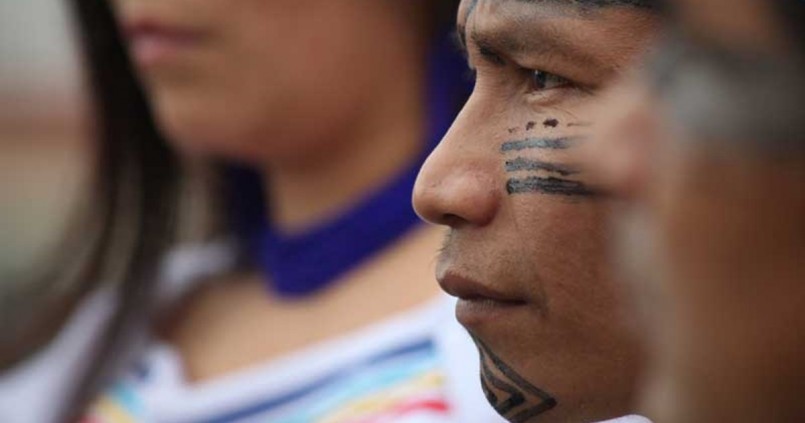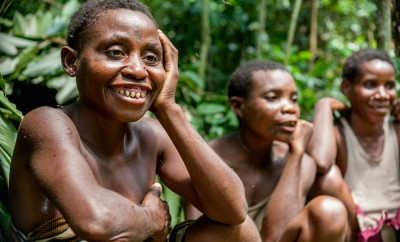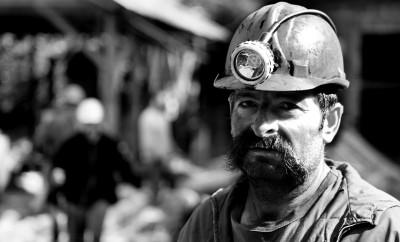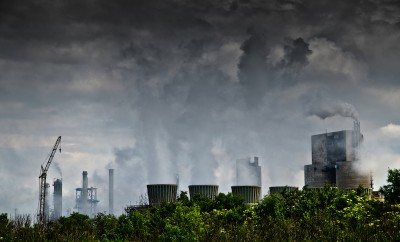Cultures
Indigenous rights defenders: Why is it so dangerous and why do they do it?

Image: Amnesty International
Throughout the world, more than 5,000 diverse groups of indigenous peoples speak more than 4,000 languages in ninety different countries, according to Amnesty International. They make up 5% of the world’s population, but 15% of the world’s population designated as ‘extremely poor.’ In September of 2007, the United Nations General Assembly adopted the Declaration on the Rights of Indigenous Peoples. According to Front Line Defenders, the Declaration establishes:
a universal framework of minimum standards for the survival, dignity, well-being and rights of the world’s indigenous peoples…and ensures their right to remain distinct and to pursue their own priorities in economic, social and cultural development.
In order to protect the basic rights declared, groups have taken up defense of the indigenous peoples, most with leadership from within the indigenous communities themselves. Although the work of these leaders often results in threats, harassment and even murder, they resiliently continue their work to preserve their land and customs. The struggles of the world’s indigenous was recently made a mainstream topic for many with the murder of Berta Caceres. Caceres, recipient of the Goldman Environmental Prize for 2015, lead a resistance group in Honduras in response to numerous ongoing environmentally destructive projects including “mines, hydroelectric dams, and model cities, ignoring an obligation to seek consent from indigenous communities.” The series of projects were set in motion after a 2009 coup which replaced democratically-elected President Manual Zelaya with a rightwing government.
Since Caceres’ murder, the prevalence of murders of indigenous rights defenders and environmentalists has started to gain worldwide attention. Along with this knowledge, recognition of those fearless enough to continue such work has also grown. I was recently honored to have a discussion with Erin Kilbride, Media Coordinator for Front Line Defenders, a Dublin-based organization aimed at protecting human rights defenders at risk. Erin shared names of those defenders she felt were most remarkable among many deserving of recognition. For the full list, as well as links to send them messages of solidarity, you can visit the Front Line Defenders site at frontlinedefenders.org. The following individuals are taken from Erin’s recommendations, as well as other sources.
From among the living heroes, we celebrate the ongoing work of:
Ana Mirian Romero
Ana was awarded the 2016 Front Line Defenders Award for her work in Honduras. She has been assaulted physically, received death threats, was personally defamed and experienced armed raids. This award was presented by former President of Ireland, former United Nations High Commissioner for Human Rights and President of the Mary Robinson Foundation for Climate Justice.
Gloria Ushigua
Gloria is the Coordinator of Sapara, a women’s organization which defends Sapara ancestral territory from exploitation in Ecuador. She has been judicially harassed, threatened and targetted by public officials and law enforcement and discredited on national television.
Martín Gómez Vásquez
Martin is the leader of the Honduran organization Movimiento Indígena Lenca de La Paz Honduras (Lenca Indigenous Movement of La Paz, Honduras – MILPAH). MILPAH defends the rights of the Lenca to their ancestral lands and environmental rights.
Maxima Acuña
Maxima, also a recipient of the Goldman Environmental Prize in 2016, defends Peruvian land against U.S. mining company Newmont plans to mine for gold and copper. She also faces threats and harassment for this continuing work.
Marco Antonio Suástegui
Marco is the leader of the Consejo de Ejidos y Comunidades Opositores a la Presa La Parota – CECOP (Council of Communal Lands and Communities Opposing the La Parota Dam) of Mexico. This group defends the Papagayo River region. He has been beaten and detained by Ministerial Police as well as threatened.
Pornpen Khongkachonkiet
Pornpen directs the Cross Cultural Foundation, which documents cases of maltreatment and torture in Thailand. She defends women and indigenous peoples and advocates on regional issues of human rights. She also works to eliminate forced disappearances.
Aura Lolita Chavez Ixcaquic
Aura works to defend Guatemalan indigenous, women’s and environmental rights as the leader of the Council of K’iche Peoples in Defense of Life, Mother Nature, Earth and Territory. She has also been attacked and threatened for her work.
Miriam Miranda
Miriam leads the Ofraneh organization, which protects the land and rights of the Garifuna Afro-Indigenous community of Honduras against the attempted “mega-tourism projects, the expansion of African palm monocultures, and market-based “false solutions” to climate change displacing Garifuna communities along the Honduran coast.”
Marcos Terena
Marcos founded a Brazilian movement called the Union of Indigenous Nations, which works to defend Indigenous Xane peoples in his home region as well as the world. Marcos also advocated for Indigenous Rights to be included in the Brazilian constitution.
Milagro Sala
Milagro founded the very large 70,000 member Tupac Amaru movement. She also works with Parlasur and other political and labor groups, and she is considered to be the first political prisoner of Argentina’s government under President Macri.
From among those murdered for their work, we honor the lives of:
Gloria Capitan
Murdered on July 1, 2016, Gloria worked in opposition to coal mining and storage in the Mariveles municipality of the Bataan province of the Philippines. She was shot by two unidentified men after allegedly being threatened and intimidated by coal company representatives.
Willie Kimani
After being missing since June 22, 2016, Willie’s body was found with the bodies of his client and taxi driver on July 1, 2016. They were last seen alive together leaving a courthouse June 22, having just filed a corruption complaint against a police officer. On July 18, 2016, four police officers were charged with the murders.
Nilce de Souza Magalhães
After being missing since January 7, 2016, Nilce’s body was found on June 21, 2016. A possible assailant was detained and confessed to her murderer in January, but has since escaped.
Lesbia Yaneth Urquia Urquia
Murdered on July 6, 2016, Lesbia was a member of the Honduran group Consejo Cívico de Organizaciones Populares e Indígenas de Honduras (Copinh), like Berta Caceres, which opposed construction of a hydroelectric dam called “Aurora I”. The dam project is owned by the National Party president and National Congress vice-president.
Daniel Choc Pop
Murdered on June 8, 2016, Daniel represented the indigenous and campesino rights of the Guatemala San Juan Tres Rios community in Coban. He regularly attended the General Assembly of the Highlands Campesino Committee (CCDA) to advocate for these rights. Among pertinent issues of the group are laws regarding local water and land ownership and subsequent disputes.
Guarani-Kaiowá
Murdered on June 14, 2016, Guarani-Kaiowá was shot alongside ten others during a paramilitary raid in Caarapo, Brazil’s Tey Jussu indigenous settlement. The settlement had been in opposition to local land owners who wish to engage in large scale farming in the region. Indigenous Rights activist Clodielo Souza was also killed during this raid.
Brenda Marleni Estrada Tambito
Murdered on June 19, 2016, Brenda worked for labor rights as a member of the Guatemalan Coalition of Workers’ Unions (Unión Sindical de Trabajadores de Guatemala – UNSITRAGUA) and Sub-Coordinator of the Union’s Legal Aid Commission. Her father was also a well-known labor advocate, having been a member of UNSITRAGUA, which unifies self-employed and independent works and manufacturing, agricultural, and service industry unions.
Natalia Estemirova
After being abducted from her home on July 15, 2009, her body was later found in a town called Ingushetia. Natalia worked to document human rights violations in the Russian republic of Chechnya, and advocate for victims and their families. She also served on the board of Memorial, a Russian human rights organization. She had received repeated death threats and harassment.
Berta Cáceres
Murdered on March 3, 2016, Berta was a leader of the Lenca native community, which is the largest Honduran Indigenous group. Her work prior to her murder centered on opposition to a hydroelectric dam in the region. Her murder was witnessed by her friend, Gustavo Castro, who pretended to be dead in order to save himself. Since then, lingering concerns and rumours expressed center around her murder being connected to the dam company. There are various petitions being circulated online, including one on the Greenpeace site, asking for a renewed internationally-organized inquiry into her murder.
Since information is spreading about these and other Indigenous Rights Defenders and environmentalists being murdered in large numbers, we can all do our part now. In sharing and searching for additional information and ways to contact government and industry officials, we can send a strong message of support to those fighting for their land and rights—which, coincidentally, also protects resources precious to all life on earth. Find your voice and join theirs.





0 comments